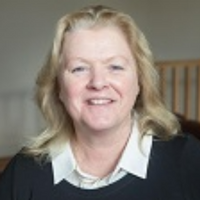Inclusive Education
The Inclusive Education SIRG has as its Mission Statement:
- Provide a focus for the worldwide exchange and dissemination of research and practice, as well as networking, in the field of Inclusive Education.
- Promote cross-national, multidisciplinary collaboration in the area of Inclusive Education. The ultimate aim of the group is to improve the quality of inclusive education and the quality of life for people with intellectual and developmental disabilities, their carers, and their families.
- Provide a framework for the collation of information relating to the research interests, expertise, and publications of group members. Within the overall process of collaboration, the views and contributions of non-professionals, including people with intellectual disabilities and developmental disabilities, their families and friends.
- Recognize the integral role that educators, affiliated professionals and non-professionals, play in crafting effective inclusive education within schools, post-secondary institutions and communities. To that end, understands and underscores the importance of teacher education and inclusive education.
- To continue to foster the practice, dialogue and research of Evidence Based Practice (EBP) instructional and assessment strategies within the Inclusive Classroom, while at the same time to
- Embrace and foster a diversity of research methodologies that have as their common goal the advancement of Inclusive Education.
The purpose of the Inclusive Education SIRG is to provide opportunities for international networking between researchers and members of IASSIDD. In this way, we hope to create opportunities for sharing information, developing initiatives, identifying new colleagues and being visible to newcomers in the field. Through the Inclusive Education SIRG, groups of researchers in the field may easily collaborate on common themes of interests.
Consistent with UNESCO 2009 Policy Guidelines on Inclusion in Education, the SIRG understands and supports a, broad vision of inclusion, including students with a variety of learning challenges/differences, (including those with complex support needs), different sensory profiles, different ethnic, racial and socio-cultural backgrounds, etc., but the focus of the IASSIDD Inclusive Education SIRG centres around students with intellectual and developmental disabilities in the inclusive classroom (although not entirely).
Inclusive Education By Laws
Inclusive Education SIRG By Laws 2016.docx
SIRG Planning & Reporting Document 2017
Minutes of Meetings
Minutes from Inclusive Education SIRG October 2023
SIRG members meeting February 2023
Minutes from Inclusive Education SIRG Glasgow Scotland 2019
Minutes from Inclusive Education SIRG Athens 2018
Inclusive Education SIRG Minutes Meeting 18th August 2016.docx

Chair
Dr. Tobias Buchner currently holds a position as professor of inclusive education, with a focus on students with intellectual disabilities, at the University College for Teacher Education Upper Austria. His main research interests are inclusive education, learning biographies and inclusive research. Along with colleagues, Buchner has published in various international journals, such as “Journal of Intellectual Disability Research”, “European Journal of Teacher Education”, „European Journal of Special Educational Needs“ and „Research Papers in Education“. He is Editor of the handbook of inclusive research in German speaking countries, „Inklusive Forschung – Gemeinsam mit Menschen mit Lernschwierigkeiten forschen“.
Buchner is member of the Austrian Monitoring Board of the UN-Convention on the Rights of Persons with Disabilities.
Dr. Tobias Buchner is part of the inaugural leadership group of the Inclusive Education SIRG of the International Society of the Scientific Study of Intellectual and Developmental Disability (IASSIDD).
email: tobias.buchner@ph-ooe.at
Committee Member
Dr Sofia Mavropoulou is employed as an associate professor in the Division of Disability Studies within the Department of Health and Rehabilitation Sciences at the University of Cape Town. She has published research in the following areas: Housing and support options for adults with intellectual disability, educational provision for children with severe and profound intellectual disability, education of children with intellectual disability and sexuality and disability. More recently she was principal investigator on the Teacher Empowerment for Disability Inclusion (TEDI) project in which face to face courses and massive online open courses for teacher professional development in inclsuve education were developed and researched. As director of the IDEA unit she has carried out projects in universal design for learning and overseen research into community based inclusive development.
email: sofia.mavropoulou@qut.edu.au

Secretary/Treasurer
Dr. Deirdre Corby, Secretary/Treasurer: Inclusive Education SIRG, is an Assistant Professor and Programme Chair: MSc in Nursing and Health Care Practice in the Faculty of Science and Health, School of Nursing & Human Sciences, Dublin City University, Ireland. Deirdre has a PhD from Ulster University, Northern Ireland (June 2016). The study was entitled: Experiences in post-secondary and higher education: a hermeneutic interpretation of the narratives of people with intellectual disability. A registered nurse in intellectual disabilities (RNID) she is interested in all areas of research that support improving the quality of life for people with intellectual disability.
Dr. Deirdre Corby is part of the inaugural leadership group of the Inclusive Education SIRG of the International Society of the Scientific Study of Intellectual and Developmental Disability (IASSIDD).
email: deirdre.corby@dcu.ie
Committee Member
Dr Judith McKenzie is an associate professor in the Division of Disability Studies within the Department of Health and Rehabilitation Sciences at the University of Cape Town. She has published research in the following areas: Housing and support options for adults with intellectual disability, educational provision for children with severe and profound intellectual disability, education of children with intellectual disability and sexuality and disability. More recently she was principal investigator on the Teacher Empowerment for Disability Inclusion (TEDI) project in which face to face courses and massive online open courses for teacher professional development in inclusive education were developed and researched. As director of the IDEA unit she has carried out projects in universal design for learning and overseen research into community based inclusive development.
email: judith.mckenzie@uct.ac.za
NEWS
Publications by our SIRG members:
Cumming, T., Strnadová, I, & Danker, J. (2020). Transitions of students with autism and intellectual disabilities in inclusive settings: The nexus between recommended and actual practice. Australasian Journal of Special and Inclusive Education. https://doi.org/10.1017/jsi.2020.1 [1]
Nind, M. & Strnadová, I. (eds.). (May 2020). Belonging for people with profound intellectual and multiple disabilities: Pushing the boundaries of inclusion https://www.routledge.com/Belonging-for-People-with-Profound-Intellectual-and-Multiple-Disabilities/Nind-Strnadova/p/book/9780367202958>. London: Routledge.
Buchner, T. & Proyer, M.D. (2020): From special to inclusive education policies in Austria – Developments and implications for schools and teacher education. In: European Journal of Teacher education 43:1,83-94. You can download the article for free here: https://www.tandfonline.com/doi/full/10.1080/02619768.2019.1691992
Bernoldová, J., Strnadová, I., & Adamčíková, Z. (2019). Women with intellectual disabilities in the role of mothers <https://karolinum.cz/knihy/bernoldova-zeny-s-mentalnim-postizenim-v-roli-matek-21580> [In Czech: Ženy s mentálním postižením v roli matek]. Praha: Karolinum a Nakladatelství Pedagogické Fakulty.
Danker, J., Strnadová, I., & Cumming, T.M. (2019). Picture my well-being: Listening to the voices of students with autism spectrum disorder. Research in Developmental Disabilities, 89, 130-140. doi: 10.1016/j.ridd.2019.04.005
Dally, K., Ralston, M., Strnadová, I., Dempsey, I., Chambers, D., Foggett, J., Patterson, D., & Sharma, U. (2019). Current issues and future directions in special and inclusive education in Australia. Australian Journal of Teacher Education.
Martin, A., Strnadová, I., Němec, Z., Hájková, V., & Květoňová, L. (2019). Teacher assistants working with students with disability: The role of adaptability in enhancing their workplace wellbeing. International Journal of Inclusive Education. doi: 10.1080/13603116.2018.1563646
Corby D; Taggart L; Cousins W; (2018) ‘The lived experience of people with intellectual disabilities in post-secondary or higher education’. Journal of Intellectual Disabilities https://doi.org/10.1177/1744629518805603
Rillotta, F., Arthur, J.K., Hutchinson, C. and Raghavendra, P. (2018). Inclusive university experience in Australia: Perspectives of students with intellectual disability and their mentors. Journal of Intellectual Disabilities, doi: 10.1177/1744629518769421
Tichá, R., Abery, B., Johnstone, C., Poghosyan, A., & Hunt, P. (Eds.) (2018). Inclusive Education Strategies: A Textbook. Minneapolis, MN, USA: University of Minnesota; Yerevan, Armenia: UNICEF Armenia & Armenian State Pedagogical University.
Frankena, T.K. et al. (2018) A consensus statement on how to conduct inclusive health research. Journal of Intellectual Disability Research.https://onlinelibrary.wiley.com/doi/abs/10.1111/jir.12486
Thompson, S. Anthony and Timmons, Vianne (2017).From Inclusive Education to Inclusive Employment? Chronicling Inclusive Pathways for Persons with Disabilities. Japanese Journal of Rehabilitation 171, pp. 8-15.
Corby, D.; King, E.; Petrie, M.; Reddy, S.; Callan, A.; Andersen, T. (2022) Making a Case for the Inclusion of People with Intellectual Disabilities in Higher Education. Disabilities, 2, 415-427. https://doi.org/10.3390/disabilities2030029
Roundtables
Europe Congress Diversity &Belonging: Celebrating Difference
Inclusive Education of Persons with Intellectual Disabilities in schools in Europe: State of the States.
Post- Secondary and Third Level Education for people with intellectual disabilities
Mathematics Education for Learners with Down Syndrome
The International Association for the Scientific Study of Intellectual and Developmental Disabilities (IASSIDD) is the first and only world-wide group dedicated to the scientific study of intellectual disability.
Founded in 1964 as the International Association for the Scientific Study of Mental Deficiency, IASSIDD is an international, interdisciplinary and scientific non-governmental organization which promotes worldwide research and exchange of information on intellectual disabilities.
This site uses cookies. Find out more about cookies and how you can refuse them.